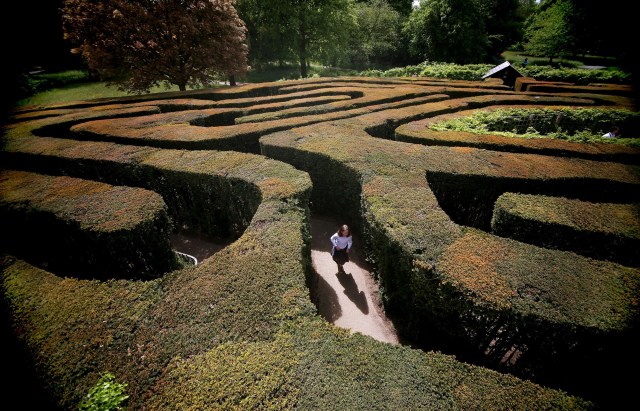Credit Image: Dan Kitwood/Getty Images

How do we get more students from disadvantaged backgrounds into university?
It’s a complex issue, but some of the answers are remarkably simple. Indeed, simplification is the answer – at least when it comes to smoothing the path from secondary to tertiary education.
In a report for Brookings, Susan M Dynarski explains how some parts of the United States have made a big difference at little cost:
“These seemingly minor obstacles put many low-income students off the path to college. A study of high school seniors in Boston found that few low-income youth “decide” against college. Rather, they miss a key deadline, or incorrectly fill out a form, or fail to take a required class, and thereby fall off the path to college.”
Bureaucracy isn’t much fun for any of us, but for students who lack sufficient resources, encouragement and guidance, it can be the final straw:
“Consider the ACT and SAT. These entrance exams are required for admission to virtually all selective colleges in the US. Students have to register and pay for these tests, and then travel to a testing center on a weekend to take them. This is straightforward, if you have internet access, a computer, a credit card, and a car. If you are missing any of these resources, it’s a lot more challenging.”
Fortunately, in some areas, an effort has been made to remove these obstacles:
“…in a dozen states, the ACT or SAT is now given in school, for free, on a school day during school hours. In most cases, the ACT or SAT replaces the standardized test that students would otherwise take in high school, so there is no additional time spent testing… Sitting for the test is also required, which means that students can’t opt out because of low expectations – whether theirs or those of the adults around them.”
How much of a difference does this make? Dynarski cites the example of Michigan, which reformed its testing system in 2007:
“For every 1,000 students who scored high enough to attend a selective college before testing was universal, another 230 high scorers were revealed by the new policy. Among low-income students, the effect was even more dramatic: for every 1,000 low-income students who had taken the test before 2007 and scored well, another 480 college-ready, low-income students were uncovered by the universal test.”
Of course, identifying students who ought to go to college doesn’t guarantee that they will. But, at the very least, universal testing of aptitude leaves educators and policymakers with no excuse when disadvantaged, but talented, students fail to progress.
And there’s a wider lesson, one that applies to regulatory reform in all policy areas: it’s not having rules that’s the problem, but the time and hassle it takes to follow them.
For instance, universal testing of students is a rule and pretty strict one – but that’s fine as long as sitting the test (if not the test itself) is made easy.
As long as we understand the distinction between rules and red tape, we can maintain standards without imposing bureaucratic burdens on those most likely to stumble.










Join the discussion
Join like minded readers that support our journalism by becoming a paid subscriber
To join the discussion in the comments, become a paid subscriber.
Join like minded readers that support our journalism, read unlimited articles and enjoy other subscriber-only benefits.
Subscribe